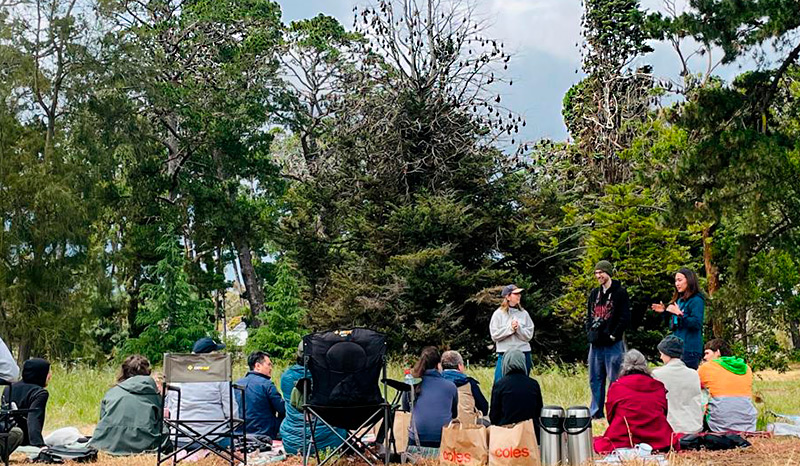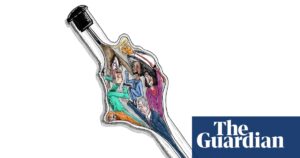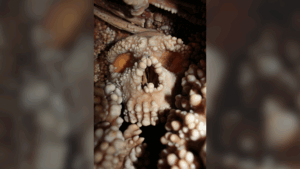
A quiet, rainy Sunday morning in Geelong saw a group of local residents gather for an event called “Bats and Belonging” at Eastern Park. This unique arts project, guided nature meditation walk, and community learning experience centered on the grey-headed flying fox colony, one of Victoria’s largest permanent bat colonies. The event aimed to foster a deeper connection between the community and these fascinating creatures.
The Eastern Park bat colony is a significant ecological site, with numbers fluctuating from several thousand in cooler months to over 10,000 in summer. Despite these figures, the population is declining due to habitat loss, heat events, and human pressures, classifying them as a threatened species. This backdrop set the stage for the day’s activities, which included a mindful walk and educational talks.
A Mindful Walk with Purpose
Led by Dr. Belinda Christie from Deakin University, the event began with a slow, silent walking meditation along the Barwon River. Participants were encouraged to connect with their surroundings and approach the bats with presence and compassion. This mindful approach set the tone for the day, emphasizing the importance of slowing down to truly engage with the natural world.
Upon reaching the bat colony, the group engaged in a period of shared silence, followed by a series of informative talks. Wildlife ecologist Dr. Kaori Yokochi highlighted the ecological importance of flying foxes as pollinators and their cultural significance. She explained their unique flight adaptations and complex social lives, drawing attention to the rich Indigenous stories featuring bats.
Challenges and Conservation Efforts
Local wildlife rescuer Layla Merrit shared insights into the daily challenges faced by the colony, including starvation events, heat stress, and human disturbances. She detailed the rescue and rehabilitation efforts by volunteers, emphasizing the need for community awareness and protective measures. Artist Nysaa Braid then led a creative exercise to inspire new ways of observing the bats.
The afternoon concluded with a talk by researcher Davita Coronel, who explored the historical and ethical dimensions of human-bat relationships. She traced the colonial persecution of flying foxes and discussed ways individuals can contribute to their protection, such as supporting wildlife groups and advocating for better management plans.
From Awe to Responsibility
The event left participants with a renewed sense of connection and responsibility towards the bats. As the conversation shifted from facts to action, the focus turned to living alongside these creatures in a heating world. The threat of rising temperatures was starkly highlighted, with heat events posing significant risks to the bats’ survival.
Geelong’s proximity to the bay offers a slight reprieve with cooler sea breezes, but the rising temperatures remain a concern. Protecting the colony now also means preparing for a hotter climate, emphasizing the need for community involvement in conservation efforts.
Understanding Bats as Individuals
Researchers are uncovering the rich communication and social structures within bat colonies, suggesting a complexity akin to culture. Mothers and pups have unique calls, and bats use gestures to negotiate space, demonstrating their intelligence and social awareness. This understanding challenges us to see bats as individual beings with distinct lives and needs.
The upcoming “Bats and Belonging” exhibition at Untether Gallery reflects this shift in perspective. The artworks aim to capture the emotional and ecological significance of the bats, encouraging community members to engage with them as neighbors rather than nuisances.
Community Action and Future Steps
The closing invitation of the day was an open-ended call to action. Participants were encouraged to stay involved, whether through advocacy, supporting carers, or making small changes in their own lives to support the bats. The message was clear: the future of Geelong’s flying foxes is intertwined with the choices we make today.
Mindfulness, as practiced during the walk, offers a path to reconnect with nature and address climate anxiety. Dr. Christie emphasized that such practices are integral to fostering a sustainable and compassionate society, aligning with the broader goals of the “Bats and Belonging” project.
As the event concluded, participants left with a deeper understanding of their hand-winged neighbors and a commitment to fostering a harmonious coexistence. The bats of Eastern Park are not just part of Geelong’s present but are vital to its future, urging us to act with care and responsibility.






